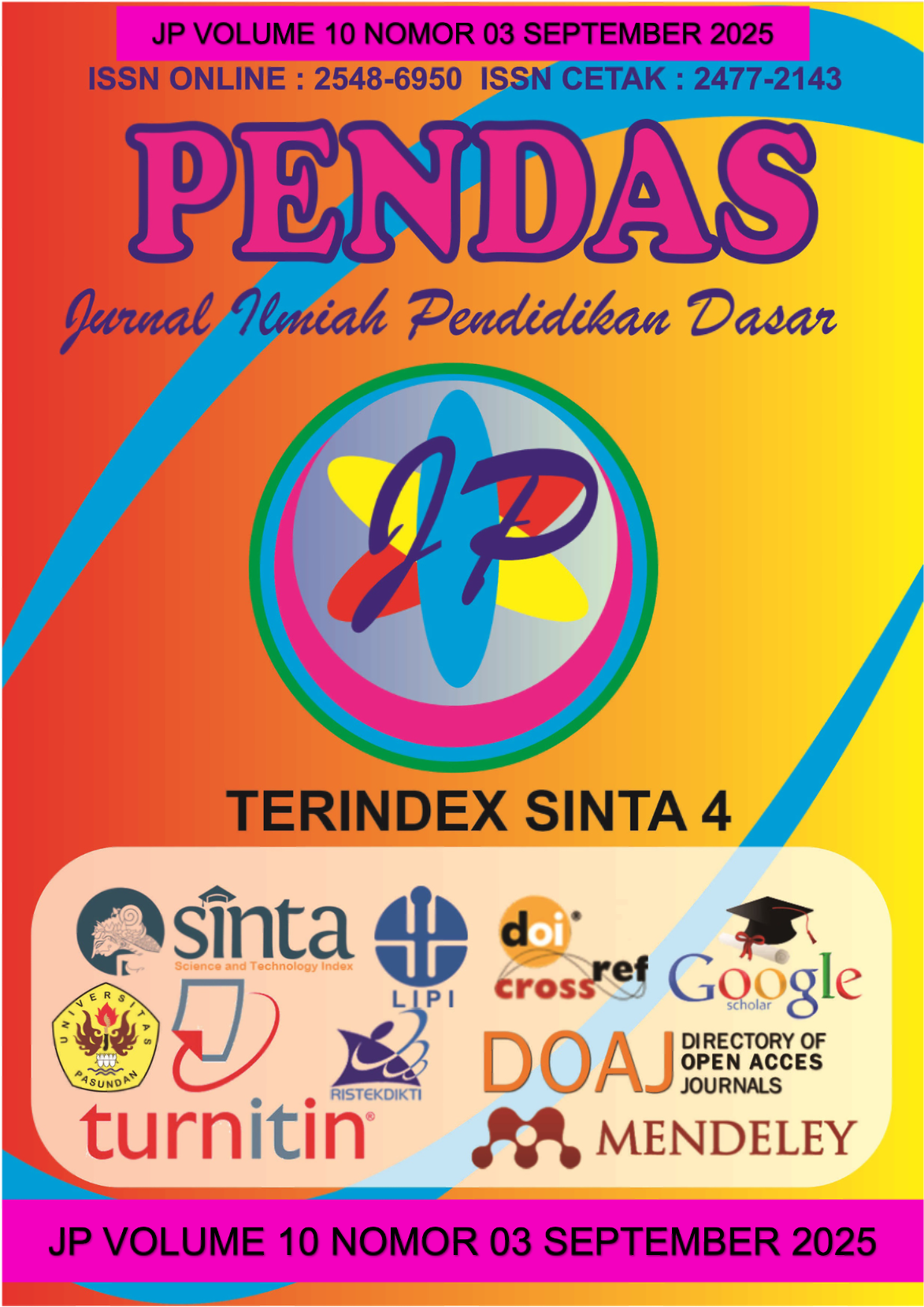MODEL INTEGRATIF COACHING-MENTORING DALAM SUPERVISI AKADEMIK: STUDI KASUS KEMANDIRIAN PEDAGOGIK GURU DI SMP AL AZHAR 48 SAMARINDA
DOI:
https://doi.org/10.23969/jp.v10i03.30875Keywords:
Supervisi Akademik, Coaching, Mentoring, Kemandirian Pedagogik GuruAbstract
This study examines the implementation of an integrative coaching-mentoring model in academic supervision to enhance teachers' pedagogical autonomy, specifically at SMP Al Azhar 48 Samarinda. The background reveals gaps in teacher professional development programs in Southeast Asia, with 70% of teachers struggling to access quality initiatives. In Indonesia, 65% of private junior high school teachers find existing supervision programs disempowering. Supervision paradigms have shifted from administrative to collaborative approaches, yet implementation remains fragmented and lacks synergistic integration of coaching and mentoring. The study addresses three research gaps: the absence of an integrated supervision model, the administrative focus of current research in Indonesian private junior high schools, and the neglect of unique Islamic school values. Employing an intrinsic qualitative case study approach , this research will explore best practices and obstacles in collaborative, personalized, and value-driven academic supervision. Data was collected through semi-structured interviews, participant observation, and document analysis involving five teachers, two supervisors, and one school principal. Theoretically, this study contributes to forming a holistic supervision framework that combines instructional reflection (coaching) with sustained professional relationships (mentoring). Practically, the findings are expected to serve as an adaptive guide for similar private schools and inform policy considerations for relevant teacher supervision programs.
Downloads
References
Alkaabi, A. M. (2021). A qualitative multi-case study of supervision in the principal evaluation process in the United Arab Emirates. International Journal of Leadership in Education.
Chen, S., & Phillips, B. (2020). Exploring teacher factors that influence teacher-child relationships in Head Start: A grounded theory. The Qualitative Report.
Daly, C., Glegg, P., Stiasny, B., & Hardman, M. (2023). Mentors as instructional coaches for new teachers: Lessons learnt from the early career framework in England. International Journal of Mentoring and Coaching in Education.
Dreer-Goethe, B. (2023). Well-being and mentoring in pre-service teacher education: An integrative literature review. International Journal of Mentoring and Coaching in Education.
Glickman, C. D., Gordon, S. P., & Ross-Gordon, J. M. (2014). SuperVision and Instructional Leadership: A Developmental Approach. Pearson
Göker, S. D. (2020). Cognitive coaching: A powerful supervisory tool to increase teacher sense of efficacy and shape teacher identity. Teacher Development.
Huang, J., Lock, K. Y. N., & Teng, F. (2019). Autonomy in English language teaching: A case study of novice secondary school teachers in Hong Kong. Chinese Journal of Applied Linguistics.
Hui, K. S., Khemanuwong, T., & Ismail, S. A. M. M. (2020). Keeping teachers afloat with instructional coaching: Coaching structure and implementation. The Qualitative Report.
Kakeeto, D. (2021). Utilizing a Social Constructivist approach to cultivate teacher-educators' and trainees' digital competence at Makerere University
Khan, F. (2025). Transformational leadership and teacher work performance: Mediating effect of job autonomy and trust in school principal. Educational Management Administration & Leadership.
Kindlinger, M. (2021). Meta-reflexivity and epistemic cognition in social science teacher education. Journal of Social Science Education, 20(2), 21–34.
Le Cornu, R. (2023). Integrative approaches to teacher supervision: A synthesis of coaching and mentoring frameworks. International Journal of Teacher Development.
Le Cornu, R., & Peters, J. (2020). Towards constructivist classrooms: The role of the reflective teacher. Journal of Educational Enquiry, 4(2), 20–35.
Merriam, S. B., & Tisdell, E. J. (2020). Qualitative Research: A Guide to Design and Implementation. Jossey-Bass.
Mokoena, T. D., & van Tonder, G. P. (2024). Influencing beginner teachers' autonomy: The impact of mentorship in fostering self-directed learning. International Journal of Educational Management.
Okumu, M. O., Lammert, C., & Hargura, H. M. (2021). Teacher candidates’ perceptions of peer and instructor feedback through video annotations. Education Sciences, 14(12), 1361.
Patton, M. Q. (2020). Qualitative Research & Evaluation Methods (4th ed.). SAGE.
Pereira, A. V., Martins, A., & Coimbra, N. (2020). Pedagogical supervision and change: Dynamics of collaboration and teacher development. International Journal of Education.
Sagnak, H. C., & Baran, E. (2021). Faculty members’ planned technology integration behaviour in the context of a faculty technology mentoring programme. Australasian Journal of Educational Technology, 37(5).
Sandvik, L. V., Solhaug, T., & Lejonberg, E. (2020). School mentors’ perceived integration into teacher education programmes. Professional Development in Education.
Sator, A. (2021). The interdependence of technology, pedagogy, and epistemology: A self-study of my pedagogy of technology teacher education. Simon Fraser University.
Toprak, M., Marey, R., & Hesham, G. (2020). Re-conceptualizing teacher evaluation and supervision in the light of educational reforms in Egypt. Social Sciences and Humanities Open.
Windschitl, M. (2020). Framing constructivism in practice as the negotiation of dilemmas: An analysis of the conceptual, pedagogical, cultural, and political challenges facing teachers. Review of Educational Research, 72(2), 131–175.
Downloads
Published
Issue
Section
License
Copyright (c) 2025 Pendas : Jurnal Ilmiah Pendidikan Dasar

This work is licensed under a Creative Commons Attribution 4.0 International License.



















